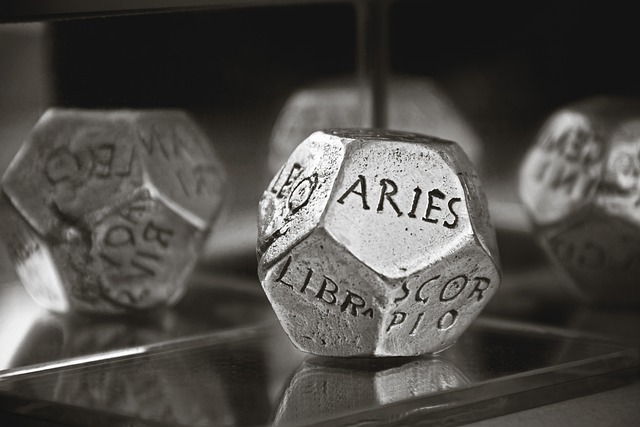Your astrological fate is largely determined by the positions of the celestial bodies in our solar system at the time of your birth, or atmospheric placement, if you will. Astrologers concentrate on the specific location of the sun to create horoscopes, which determine your sun sign. But it’s important to take into account the positions of the planets as well, since each one has a different significance in astrology, in order to gain a comprehensive knowledge of how the celestial map may affect your personality and course of life. A facet of our personalities is represented by each planet.
The planets in your natal chart, each of which was situated in one of the 12 houses and one of the 12 zodiac signs when you were born, act as the principal characters in your life. You can get to know the impacts of the planets with the help of traditional kundli predictions.
According to astrologers, the following are the important interpretations of each planet in astrology:
Sun: Pride, Imagination
Although the sun is a star and not a planet, it nonetheless has a comparable influence on astrology as the planets do because it is a luminary body in our solar system. Since its position in the sky at the moment of your birth determines your sun sign, or the zodiac sign you’d ordinarily read in a horoscope, it may really have the biggest impact on your general personality. It transits into a new sign each month, so you can gain more insight into how its influence plays out in your life by looking at the sign it was in when you were born. However, you might also take into account the astrological house it was in. This can help you gain some understanding of the key context in which you will carry out your fundamental purpose in life.
Moon: Feeling
By scientific standards, the moon is not a planet either, yet it performs a comparable role as a powerful celestial body in astrology. It’s common for the sign the moon was in at the time of your birth to reflect aspects of your innermost identity that may not match the sun sign’s interpretation of your personality on the surface. In order to correctly determine your moon sign, it’s important to know the exact time and place of your birth because the moon moves quickly.
Mercury: Interaction
Mercury is the planet of reason, verbal exchange, and introspection. Because it is the planet in our solar system that is nearest to Earth, it tends to have a particularly significant impact over humanity.
The adjective “mercurial” is used to describe someone who is vivacious, volatile, and prone to sudden mood swings.
Your astrological Mercury sign might influence how you interpret, process, and express information.
Venus: Connections and Love
Venus’ central theme is our sense of self-worth. Its strength is linked to our romantic preferences, partner-seeking tendencies, capacity for dispute resolution, and social graces. Because of this, understanding a partner’s Venus sign might help you understand how they like to be loved. Every four to five weeks, the globe shifts into a different sign.
Venus also governs our financial affairs, which is related to the subject of self-worth and how we prefer to feel appreciated.
Our sense of style in the arts and in regards to clothing also strongly correlates with our Venus sign.
Mars: Physical Force
Mars represents our physical drive, therefore knowing what sign your Mars is in will help you choose a fitness routine that will be most beneficial to your body. While someone with Mars in Gemini would appreciate mixing things up with a recurring schedule of intense fitness courses, someone with Mars in Cancer might prefer the mind-body aspects of yoga. Mars is also the planet that governs our sexual desires because of its link to the physical and its affinity with energy and passion. Every six to seven weeks, it changes signs.
Jupiter: Fortune
Jupiter is the largest planet in our solar system, which makes it difficult to pinpoint its overall function and influence. It is typically the planet that is most closely associated with our religions, philosophies, and beliefs. It is also associated with luck and fate. Jupiter ultimately wants us to follow what makes us the happiest and what ignites the most enthusiasm, joy, and passion. It is also the planet of exploration and shows us how to broaden our perspectives and experience personal growth. Every two to three years, it changes signs.
Saturn: order
Saturn is the sky’s architectural leader, and in astrology, the term “Saturn return” is frequently used to describe the period whenever the planet reappears to the position it was in when you were born, usually in your late twenties, thereby ushering you into maturity. Greater metaphysical questions about mission and personality that frequently accompany growing pains can arise as a result of the significant milestones or life changes that are characteristic of this period.
Saturn is a symbol of our perceptions of boundaries, authorities, promises, duties, order, and effort. Because of this, understanding your Saturn sign can help you identify your greatest difficulty in life and offer some advice on how to successfully overcome it. Every two to three years, it switches signs.
Uranus: Creativity
When it comes to Uranus, one of the modern planets that was found decades after the traditions of astrology and astronomy had been formed, creativity, research, and techniques are the order of the day. Its influence is a force for development and transformation in comparison to Saturn’s conservatism and stability, which contributes to the disruptive nature of the current Saturn-Uranus square. Uranus’ effect is more cyclical than personal because it is far from Earth and moves between signs every around seven years.
Neptune: Artistic
This far planet addresses our ideals, aspirations, and spiritual propensities. Additionally, when it enters, it might make you consider the difference between reality and illusion and inspire you to demand total honesty from both yourself and your loved ones. Similar to Uranus, it transits between signs slowly about 10 to 12 years which broadens the scope of its generational influence. Neptune is associated with the sensation of unity we could have during prolonged meditation, as well as with narcotics, caffeine, alcohol, and other addictions.
Pluto: Resurrection
Pluto may no longer be considered a planet by science, but it still occupies a similar position in astrology, where it rules over the body’s regenerative forces, death, and rebirth. Pluto also has a connection to our deepest psychological aspects and the unconscious. From the perspective of Earth, it moves slowly compared to the other outer planets, changing signs only every 12 to 15 years. As a result, rather than being primarily personal, its influence is also generational.
Although it is easy to make a general assumption about various aspects, only a good astrologer and help reveal the hidden details using your exact birth details. Your horoscope or an online kundli can act like a forecast, studied by experienced astrologers and they can look into our birth charts to make predictions. In order to discern the relative placement of the planets in your chart and what fate that may portend, it is essential to learn the meanings of each planet in astrology. So, do seek professional help to get a deep insight into the fascinating world of ancient astrology!







